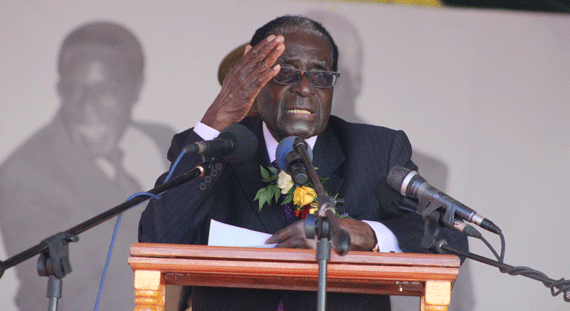
BRUSSELS — The European Union suspended sanctions on eight of Zimbabwe’s most powerful military and political figures yesterday, but kept them on President Robert Mugabe and his wife, in a cautious easing of policy after last year’s disputed elections.
The 28-nation EU, which imposed sanctions on Zimbabwe in 2002 in protest at human rights abuses and violations of democracy under Mugabe, has gradually eased sanctions over the last few years to encourage political reform.
Another decision, to be taken by ministers today, is expected to pave the way for the EU to resume channelling development aid directly to the Zimbabwe government from 2015 after years in which the bloc shunned the government and worked with charities.
The EU’s concessions were dismissed by Zanu PF spokesman Rugare Gumbo, who said in Harare: “This is all nonsensical, we don’t accept these half measures. We want total and irrevocable removal of sanctions.
“They cannot keep the president on the sanctions list, what has Mugabe done? We have said we are open to talking to the EU, but they have to remove those sanctions. They are hurting our people,” he said.
The EU decided yesterday to keep Mugabe and his wife Grace under an asset freeze and a ban on travelling to the EU for another year. The bloc is retaining an arms embargo on Zimbabwe and sanctions on arms supplier Zimbabwe Defence Industries.
But sanctions, which are reviewed annually, were suspended on the eight senior Zimbabwe officials who remained on the EU’s list, EU sources said.
They include Zimbabwe Defence Forces commander Constantine Chiwenga, army commander Phillip Valerio Sibanda, Air Force commander Perence Shiri, intelligence chief Happyton Bonyongwe, police chief Augustine Chihuri and Minister of State for Presidential Affairs Didymus Mutasa.
- Chamisa under fire over US$120K donation
- Mavhunga puts DeMbare into Chibuku quarterfinals
- Pension funds bet on Cabora Bassa oilfields
- Councils defy govt fire tender directive
Keep Reading
— Reuters










